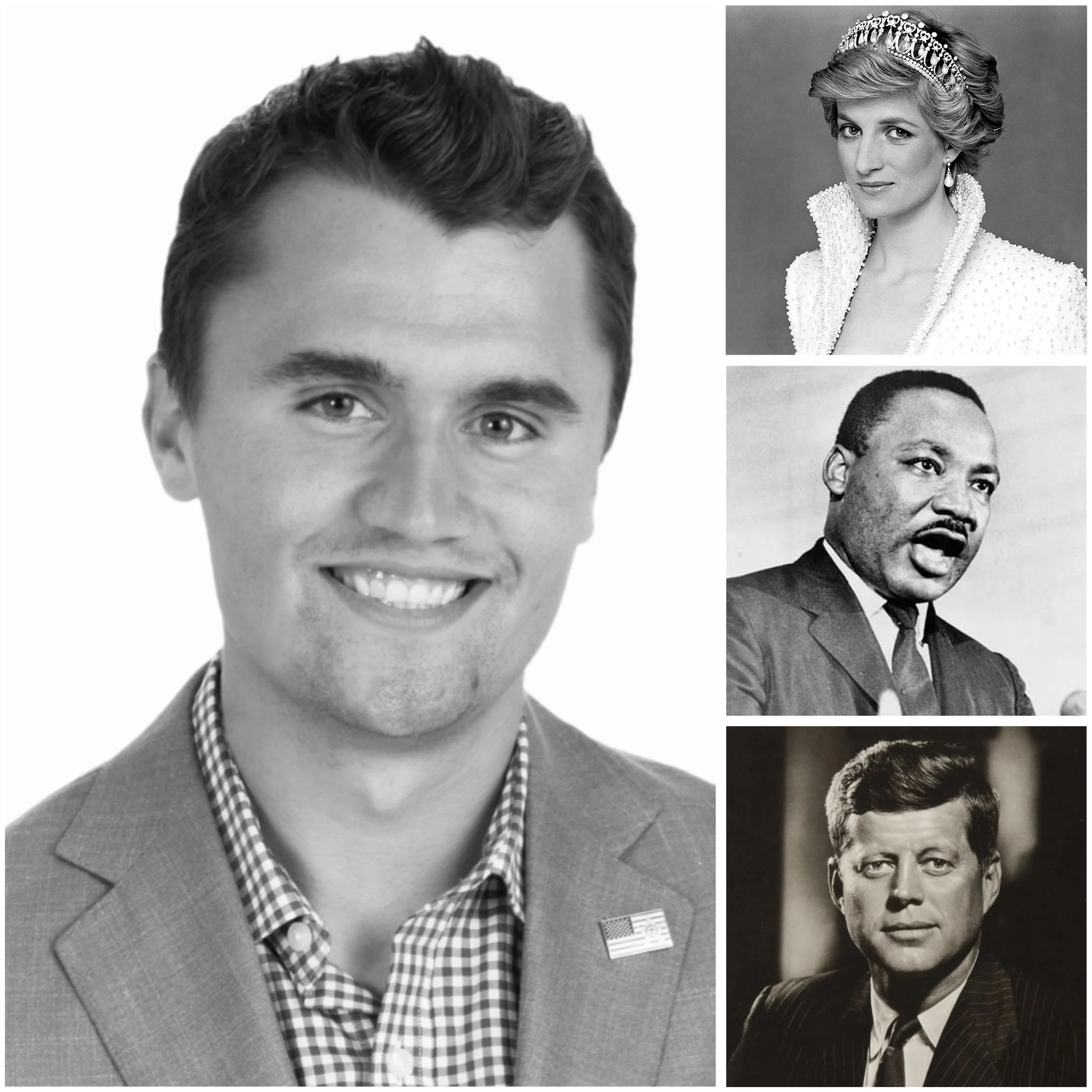When grief shakes the world
I felt a shift had taken place—not just within myself, but all around the world. My stomach churned with nausea. The television repeated the same words over and over: “She’s gone.” I couldn’t believe it.
Princess Diana, someone I had admired for so long, was dead. I had never met her, but it felt like I had lost a friend.
It was August 31, 1997. She was only 36 years old. Perhaps what made it so haunting was that it was sudden, violent, and she left behind two young sons—just as I had two sons of my own. Whatever it was, her death felt different than anyone else’s I had experienced.
In many ways, you have to relearn how to live all over again.
That wound stayed with me until May 21, 2023, the day my son disappeared and was later found murdered. One thing people rarely tell you about this kind of trauma is that it never truly goes away. Life never returns to “normal.”
Even though I’ve endured many losses—my parents, close friends, and family members—nothing compared to the devastation of losing a child.
But here’s what has struck me all these years as I’ve sat with my grief: Why do deaths of people we’ve never met hurt so deeply?
Why does it feel like we lose a part of ourselves when a public figure dies?
Over the years, I’ve found there are five powerful reasons we grieve strangers as if they were family. Later, I’ll share three ways I’ve personally learned to move forward with grief—practical ways that don’t erase the pain but help carry it. If you’ve ever been shaken by the death of someone you never knew personally, I encourage you to keep reading. What you’ll discover may explain not only your sorrow, but also how to live more compassionately in its wake.
By the way, this isn’t about who you mourn versus who someone else mourns, nor is it about supporting or agreeing with any one public figure. Rather, it’s about the impact their deaths have on us collectively—the way public grief seeps into our homes, our conversations, and even our sense of stability. Whether you admired them or not, the loss of a well-known person has a ripple effect on society that reveals something important about our shared humanity.
Photo of John F. Kennedy, White House Photo Portrait, 1961. Public domain (NASA / U.S. government photo).
The Kennedy assassinations were some of my earliest encounters with collective grief. I was young when President John F. Kennedy was killed. I didn’t fully understand what was happening, only that school was canceled and adults were whispering in hushed, horrified tones. There was no internet back then, but word spread like wildfire. It felt like the air itself had changed.
Though my dad strongly disliked JFK during his lifetime, I’ll never forget his reaction after the assassination. His response was deeply Christian—he never mocked or minimized Kennedy’s death. Instead, he joined in the collective sadness surrounding our community, showing me even then that grief unites us, regardless of personal opinion.
Then, when Martin Luther King Jr. was assassinated, I was 18. Old enough to know, but still not fully able to grasp the magnitude. People trashed him after his death, just as they would later with Charlie Kirk.
History repeats itself, and yet no one seems to notice.
Photo: Martin Luther King Jr. delivering “I Have a Dream,” 1963. Public Domain (U.S. Government / National Archives).
Bobby Kennedy’s assassination followed not long after, another televised tragedy.
These moments taught me something: trauma witnessed on TV is different.
For children, it’s confusing and surreal—they sense the weight but don’t yet understand it. For adults, it’s crushing, because they do understand.
These televised deaths have imprinted themselves on entire generations,
just as Kirk’s death—spread across every screen, every feed—has imprinted itself on ours.
JFK himself once said: “A man may die, nations may rise and fall, but an idea lives on.” That is exactly why these deaths are so destabilizing—the people were mortal, but the ideas they carried felt immortal.
This reminds us why Fascinating Womanhood teaches: true character includes unselfishness, compassion, and love toward our neighbors—even strangers or people whose beliefs differ from ours. Humanity in grief is a measure of our strength. It also teaches that feminine strength means embracing the ability to be a caretaker, a nurturer, and a loving example. True influence and power come from love, not aggression.
Over the years—through childhood innocence, adulthood responsibilities, and the deep scars of personal tragedy—I’ve uncovered some powerful truths about why these losses cut so deeply. I’ve come to believe there are five distinct reasons we grieve so intensely, even for those we never personally knew. Each one reflects something I’ve witnessed in my own life and in the lives of millions who have mourned alongside me.
Shared Humanity
When a public figure dies, it reminds us that life is fragile and fleeting. Their absence feels like a loss of possibility, of influence, and of ideals in the world. MLK once said, “Life’s most persistent and urgent question is, ‘What are you doing for others?’” His death forced people, even those who didn’t know him personally, to reflect on their own lives, priorities, and capacity for love.
Symbolic Relationships
We form what psychologists call parasocial relationships—one-sided bonds with people we admire from afar. They embody the ideals we strive for: kindness, courage, faith, and discipline. When they die, it feels as if part of that ideal dies with them. Princess Diana captured this beautifully: “Carry out a random act of kindness, with no expectation of reward.” Her death felt like kindness itself had been taken from the world.
Collective Identity
Some figures symbolize more than themselves. Diana represented compassion and vulnerability within royalty, Kobe Bryant embodied discipline and greatness in sport, MLK Jr. symbolized justice and equality, and Charlie Kirk represented freedom and faith to many, even while being misunderstood or criticized. JFK once said, “A man may die, nations may rise and fall, but an idea lives on.” Their lives—and the ideas they carried—continue to shape us, even after their deaths.
Mirror of Our Own Stories
Their deaths often awaken something deeply personal. Maybe their family looked like ours. Maybe their actions or words shaped our own milestones. Maybe their faith mirrored ours. Charlie Kirk once said, “What you do with your life is up to you, but you only get one shot at it.” Those words resonate even deeper when someone is taken too soon.
Collective Grieving as Community
When thousands or millions grieve together, it validates the sorrow. Vigils, conversations, and even social media create communal rituals of mourning. Bobby Kennedy once said, “Tragedy is a tool for the living to gain wisdom, not a guide by which to live.” Even before social media, grief shared by many had lasting psychological and cultural impact.
Grief never disappears.
It reshapes us and forces us to carry a new weight daily.
Lean Into God’s Presence
Prayer, Scripture, and honesty before God have been lifelines for me. Jesus said, “Blessed are those who mourn, for they shall be comforted” (Matthew 5:4). Even when I don’t understand the “why,” trusting His sovereignty brings peace. Recognizing that grief is part of life’s larger story allows us to place our sorrows in a meaningful context.
Healthy Expression of Emotions
Letting yourself feel is essential. Journaling, crying, art, or music allow grief to be expressed instead of trapped. Physical activity, walks in nature, and creative outlets help metabolize sadness. Naming the loss aloud with trusted friends or family keeps grief from overwhelming you. Fascinating Womanhood teaches that strength is not in bottling up pain, but in living through it with grace and emotional honesty.
Finding New Rhythms and Purpose
Creating daily structure helps stabilize life when everything feels unstable. Serving others, volunteering, or helping people in small ways redirects energy outward and gives grief meaning. Finding small joys—cooking, gardening, or travel—reminds us that beauty and pleasure still exist in the world. Living with purpose, compassion, and love is the essence of feminine strength: being influential through care, nurture, and modeling character for others.
Dixie Andelin Forsyth
Since my son’s death, I’ve never been the same. Grief has become both companion and teacher.
It has taught me that life will never be the same, but it can still be meaningful. The deaths of JFK, MLK, Princess Diana, Charlie Kirk, and others remind us that grief is never wasted. It connects us, refines us, and draws out our deepest humanity.
Fascinating Womanhood reminds us that even in sorrow, our character, nurturing, and compassion can be powerful, influential, and enduring. Through grief, we have the opportunity to be more compassionate, more loving, and more human. Even in the face of tragedy, we can become examples of love and strength in a hurting world.









